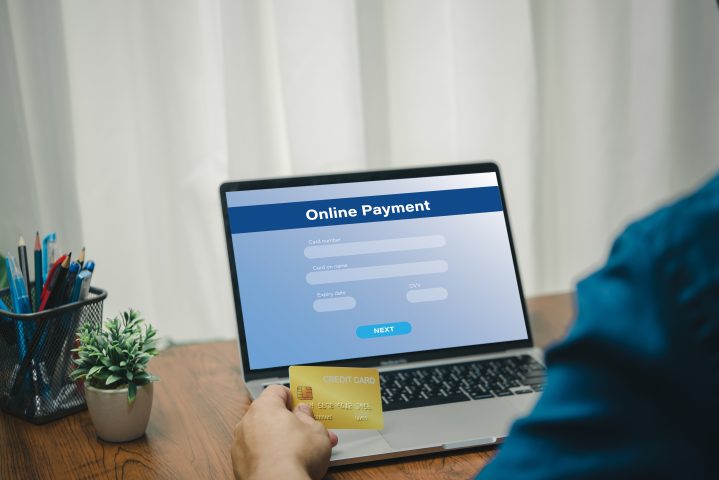In the rapidly expanding realm of digital commerce, where transactions occur with the click of a button, the pivotal role of the payment gateway emerges as a cornerstone of online transactions. Operating discreetly in the background, this virtual sentinel plays a critical role in facilitating the secure and seamless transfer of funds from the customer’s account to the merchant’s coffers.
At its essence, a payment gateway serves as the digital conduit that bridges the gap between the customer’s payment information and the merchant’s online store. Much like the unseen gears of a well-oiled machine, it silently orchestrates the intricate dance of data encryption, validation, and authorization, ensuring that every transaction is executed flawlessly.
Security lies at the heart of the payment gateway’s operations. Through sophisticated encryption algorithms, it transforms raw payment data into indecipherable code, shielding it from prying eyes during transmission. Yet, security goes beyond encryption alone. The payment gateway meticulously scrutinizes each transaction, validating the authenticity of the payment information and flagging any suspicious activity that may indicate potential fraud.
Once the transaction passes through the gauntlet of encryption and validation, it enters the domain of authorization and settlement. Here, the payment gateway collaborates with banks and financial institutions to obtain approval for the transaction and initiate the transfer of funds. Upon receiving the green light from the issuer bank, the gateway orchestrates the settlement process, ensuring the seamless transfer of funds from the customer’s account to the merchant’s account in a timely manner.
Beyond its role as a facilitator of individual transactions, the payment gateway offers a myriad of benefits that transcend geographical boundaries. With its robust security features, it instills confidence in both merchants and customers, safeguarding sensitive financial information from unauthorized access. Moreover, by offering a diverse array of payment methods, from credit cards to digital wallets, the payment gateway enhances convenience and accessibility for customers worldwide.
By streamlining the checkout process and reducing friction points, payment gateways improve the overall shopping experience for customers, thereby driving increased sales and revenue for merchants. With support for multi-currency transactions and cross-border payments, payment gateways empower merchants to tap into new markets and expand their reach on a global scale, unlocking new opportunities for growth and expansion.
In the ever-evolving landscape of e-commerce, the payment gateway stands as the unsung hero that keeps the wheels of commerce turning. As transactions continue to shift from traditional brick-and-mortar stores to the digital realm, the role of the payment gateway will only grow in importance, serving as the backbone of online commerce and powering the seamless exchange of goods and services in the digital age.
Reporting your transactions
Payment gateways offer robust reporting capabilities that empower businesses to gain valuable insights into their transaction activities, monitor performance metrics, and make informed decisions. These reporting tools provide comprehensive data visualization and analysis features, allowing businesses to track transaction volumes, revenue trends, and customer behavior over time. By generating detailed reports on sales performance, chargeback rates, and payment settlements, payment gateways enable businesses to identify areas for improvement, optimize revenue streams, and enhance operational efficiency.
Furthermore, payment gateways offer customizable reporting options that cater to the specific needs and preferences of businesses. With the ability to create tailored reports based on parameters such as transaction type, payment method, and geographic location, businesses can gain deeper insights into their target markets, customer demographics, and purchasing patterns. These customizable reports enable businesses to segment their customer base, identify emerging trends, and tailor their marketing strategies to maximize engagement and conversion rates.
In addition to transactional data, payment gateways also provide analytics and insights into fraud detection and prevention. Advanced reporting tools leverage machine learning algorithms to analyze transactional patterns, detect suspicious activities, and flag potential fraud in real-time. By offering detailed reports on fraud trends, chargeback rates, and risk exposure, payment gateways empower businesses to proactively identify and mitigate fraudulent activities, safeguarding their financial assets and reputation.
Moreover, payment gateways facilitate seamless integration with third-party analytics platforms and business intelligence tools, allowing businesses to leverage advanced analytics capabilities to gain deeper insights into their payment data. By integrating payment gateway data with other business systems such as CRM software and inventory management platforms, businesses can achieve a holistic view of their operations and make data-driven decisions to drive growth and profitability. Overall, the reporting capabilities of payment gateways play a crucial role in enabling businesses to optimize their payment processes, mitigate risks, and drive strategic business outcomes in an increasingly competitive market landscape.




